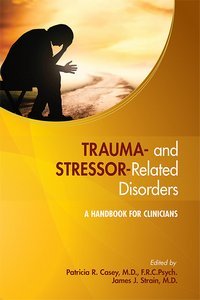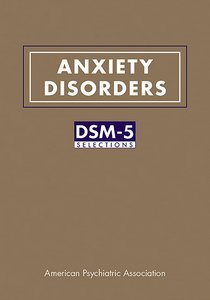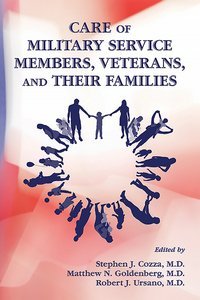Trauma- and Stressor-Related Disorders
A Handbook for Clinicians
View Pricing
Description
Both academically rigorous and clinically practical, Trauma- and Stressor-Related Disorders is fully informed by the new DSM-5 category that includes adjustment disorders, acute stress disorder, and posttraumatic stress disorder. Stress and trauma have long been recognized as playing a role in the etiology of certain psychiatric disorders, and this book delineates normal and pathological responses to stress, providing a conceptual framework for understanding trauma- and stressor-related disorders. An individual's response to stress depends on numerous genetic, developmental, cognitive, psychological, and neurobiological risk and protective factors, and these are examined from both a scientific and clinical perspective. Central to the book's utility is its presentation of clinical vignettes that help the reader to contextualize the information presented and model effective clinical skills.
Among the volume's critically important topics and features are
- A robust section on assessing the psychosocial factors associated with resilience (e.g., optimism, cognitive flexibility, a social support network), encouraging and enhancing these factors, and implementing psychosocial interventions to aid patients who have experienced trauma to promote resilience by targeting these factors.
- A comprehensive chapter on the medical-legal aspects of trauma- and stressor-related disorders because clinicians working with these patients frequently encounter situations that have legal implications (e.g., capacity evaluations, informed consent, confidentiality, serving as a witness in court proceedings).
- Full coverage of controversies unique to this group of disorders. For example, because no other set of DSM-5 diagnoses require a stressor as an etiological agent, this dimension can add considerable controversy to these diagnoses.
- Comprehensive overview of the development of the stress and trauma disorders chapter of the upcoming revision of the International Classification of Diseases (ICD-11, expected for 2017), including crosswalk tables to compare ICD-10, DSM-5, and the planned ICD-11 and featuring a summary of the evidence base for specific treatments for ICD-10 or ICD-11 stress and trauma disorder categories.
In addition, key points, informative Web sites, and recommended reading at the end of each chapter are designed to consolidate and extend the practitioner's knowledge base. Trauma- and Stressor-Related Disorders provides readers with the latest research and treatment recommendations in an expertly edited, easy-to-use format that will earn its place in the clinician's library.
Contents
- Contributors
- Foreword
- Preface
- Acknowledgments
- Chapter 1. Borderline Between Normal and Pathological Responses
- Chapter 2. Limits to the Phenomenological Approach to the Diagnosis of Adjustment Disorders
- Chapter 3. Conceptual Framework and Controversies in Adjustment Disorders
- Chapter 4. Adjustment Disorders: Epidemiology, Diagnosis, and Treatment
- Chapter 5. Acute Stress Disorder
- Chapter 6. Posttraumatic Stress Disorder: Epidemiology, Diagnosis, and Treatment
- Chapter 7. Disintegrated Experience: Dissociation and Stress
- Chapter 8. Persistent Complex Bereavement Disorder and Its Treatment
- Chapter 9. Therapeutic Adaptations of Resilience: Helping Patients Overcome the Effects of Trauma and Stress
- Chapter 10. Medical-Legal Aspects of Trauma and Stressor-Related Disorders
- Chapter 11. ICD-10, ICD-11, and DSM-5: New Developments and the Crosswalks
- Epilogue
- Index
Contributors
- Richard Bryant, Ph.D.
Patricia Casey, M.D.
Dennis Charney, M.D.
Colleen E. Gribbin, M.A.
Brian M. Iacoviello, Ph.D.
Amy L. Lehrner, Ph.D.
Andreas Maercker, M.D., Ph.D.
Axel Perkonigg, Ph.D.
Laura Pratchett, Ph.D.
P. Resnick, M.D.
M. Katherine Shear M.D.
David Spiegel, M.D.
James J. Strain, M.D.
Peter Tyrer, M.D.
H. Weinstein, M.D.
Rachel Yehuda, Ph.D.
About the Authors
Patricia R. Casey, M.D., F.R.C.Psych., is Professor of Psychiatry at University College Dublin in Dublin, Ireland.
James J. Strain, M.D., is Professor of Psychiatry and Professor of Medical Education at Icahn School of Medicine at Mount Sinai in New York, New York.
Related Products
Carousel Control - items will scroll by tabbing through them, otherwise arrows can be used to scroll one item at a time








